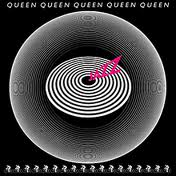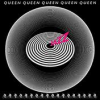 Originally published by L.S. Media June 29th 2011.
Originally published by L.S. Media June 29th 2011.
Queen’s remarkable ability of writing and producing a new album every year showed no signs of stopping as they approached the latter end of 1978. Prolific even for the time they were nurtured in, the band had spent the last few years churning out classic albums and some great quality tunes time and time again. The year 1978 was no different, after reaching a high note, critically and commercially with News of the World, the band sought to retain the position at the top of the Rock family tree with the eclectic and all most free spirited Jazz.
Rolling Stone hated it and even one of their reviewers of the time brandishing the group as the first fascist rock band. However with a peak of number two in the charts the album marks another sea change in their style which was emphasised on some on the tracks that were truly jaw dropping in their style and others that showed the band’s musical leaning that would become apparent as the decade ended.
The opening track Mustapha is like nothing the band had ever done before and surprisingly it works well as the Islamic words blend neatly and seamlessly with the musical arrangement that the band had done for the track. Enlightening and fast paced, it deserved perhaps more praise that it did at the time for being bold and novel; it is a tragedy that this song gets overlooked in the bands best of discography.
The two songs that Queen fans seem to revel in hearing from this particular era sound fresher thanks to the re-issue. In the saucily titled Fat Bottomed Girls and the speed like Bicycle Race the band throw convention to the wind and perform two songs of high calibre that would not have been out of place on their A Night at the Opera or Sheer Heart Attack album. They are joined in this by the classic Don’t Stop Me Now and the little nugget of great song writing and short story telling by John Deacon, the beautiful In only Seven Days.
Jazz is an album that long time Queen devotees relish but alongside the groups next album, The Game, shows the band changing course and away from their established roots and there is always the niggling thought at the back of the head that the band were really becoming more about the finance they could earn than the music, some truly outstanding, which had spoken to their fans.
Ian D. Hall
